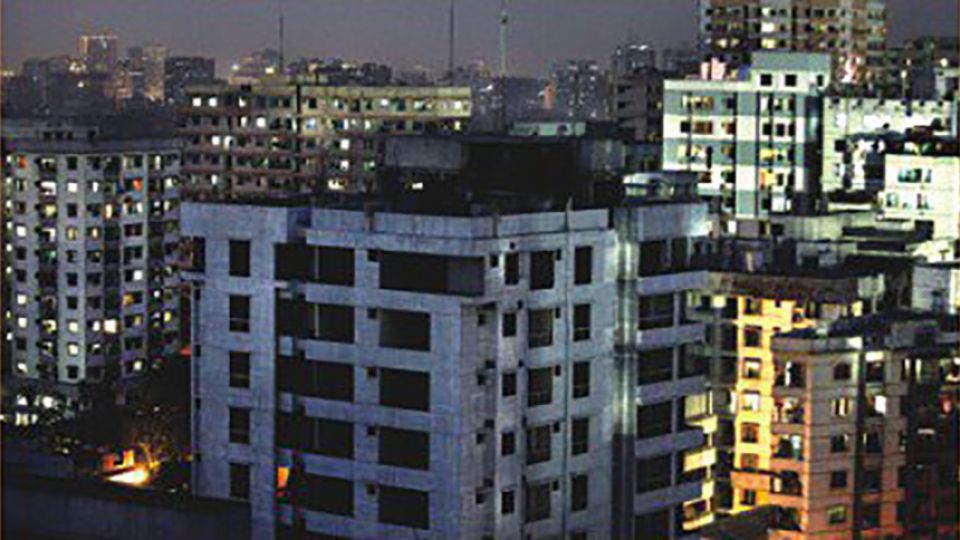July 19, 2022
DHAKA – There will be up to two hours’ countrywide load shedding from today as the government is taking various measures to cope with the ongoing energy crisis.
The government has temporarily shut down all diesel-fired power plants, which contribute 1,000-1,500MW to the national grid daily.
 The decision was taken yesterday at a high-level meeting at the PMO on the overall situation of energy and power generation, said PM’s Energy Adviser Towfiq-e Elahi Chowdhury, who attended the meeting.
The decision was taken yesterday at a high-level meeting at the PMO on the overall situation of energy and power generation, said PM’s Energy Adviser Towfiq-e Elahi Chowdhury, who attended the meeting.
Before the temporary closure, diesel-fired power plants formed part of the daily production of 12,000-13,000MW against the demand of 14,000-14,500MW, according to Bangladesh Power Development Board (BPDB) data.
The other measures discussed at the meeting were keeping fuel pumps shut one day per week, reducing office time by one to two hours and holding all government meetings virtually.
The websites of the Dhaka Power Distribution Company (DPDC), Dhaka Electric Supply Company Ltd (DESCO), Northern Electricity Supply Company Ltd (NESCO) and BPDB yesterday included sections on the schedules of load shedding in respective areas.
Two other power distribution organisations, West Zone Power Distribution Company and Bangladesh Rural Electrification Board (BREB), were yet to put up schedules till last night.
“We want to let customers know about the load shedding in their areas earlier, and we are working on it,” said Nasrul Hamid, state minister for power, energy and mineral resources, yesterday.
At a press conference at the Secretariat, he said from today there will be one hour of load shedding daily over the next week.
“If that is not sufficient, we would go for two hours,” he added.
“The power supply to the industrial and commercial sectors will remain uninterrupted,” he added.
An official of the power division said there are still over four to five hours of power outages under Bangladesh Rural Electrification Board.
The state minister denied that there was load shedding in rural areas. “There might be some technical problems. The rural areas have long distribution lines. If any problem was being fixed anywhere, the whole area went dark.”
Some more decisions to reduce the fuel use in cars will be announced through government notifications, said sources with knowledge of yesterday’s meeting at the PMO.
They said the meeting also recommended strict implementation of the decision to close shopping malls and markets by 8:00pm.
Asked about shutting petrol pumps for one day a week, Nasrul replied, “A final decision on the closure of petrol pumps is yet to be taken. The decision will be taken after discussion with all concerned.”
He said 10 percent of the country’s diesel stock is used in the power sector, and that amount will be saved by closing diesel-based power plants. Another 10 percent diesel will have to be saved from the transport sector through measures to be announced soon.
After the PMO meeting, PM’s Energy Adviser Towfiq-e Elahi Chowdhury said that as a result of the ongoing Ukraine-Russia war, the energy cost skyrocketed and that is why there was no alternative to load shedding.
“All the countries, including the UK and USA, are also experiencing load shedding,” he said.
Principal Secretary to the PM, Ahmad Kaikaus, presided over the meeting attended by the high-ups of power and energy division, BPC, Petrobangla, BPDB and the power distribution companies.
On July 7, another high-level meeting recommended setting thermostats at 25 degrees Celsius at every government office, reducing the use of air conditioners at religious establishments, and wrapping up social events like weddings by 7:00pm.
Yesterday’s meeting recommended that these measures be implemented as soon as possible.
“Devotees in all religious establishments can use air conditioners during prayers but are requested to maintain austerity by keeping those off the rest of the time,” said the state minister at the press conference.
According to the BPDB, the country has a capacity to produce 22,348MW. Of it, around 52 percent comes from gas-based power plants, 27 percent from furnace oil-based plants, 5.86 percent from diesel-based, 8.03 percent from coal-based plants and the rest from hydro, solar and import.
Since the government decided to stop the import of liquified natural gas from the international spot market at a high price, there were shortfalls in power generation. Since June 30, the country started load shedding to meet the shortfalls.


